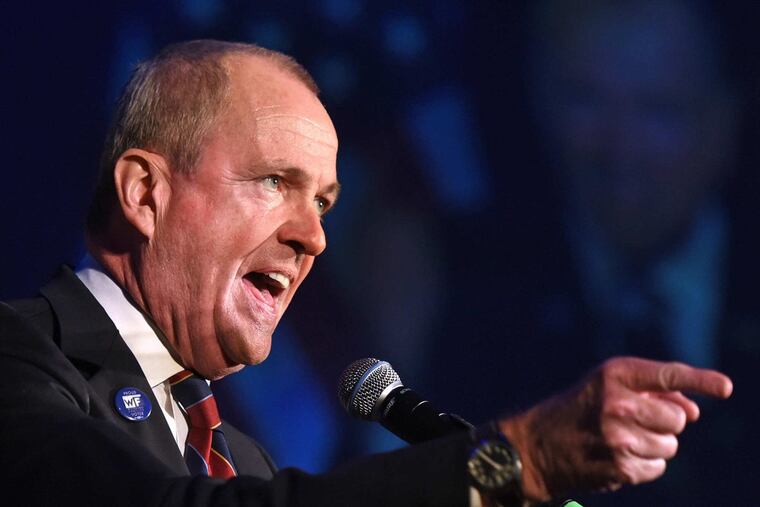Federal judge halts New Jersey 'dark money’ law
In issuing an injunction, a federal judge said he found the law "constitutionally troubling."

Donors looking to influence New Jersey politics and elections can remain hidden for a while longer after a federal judge halted the state’s controversial dark-money law on Wednesday.
The law requires politically oriented nonprofits to disclose donors who give more than $10,000, along with all organization expenditures over $3,000, if geared toward “influencing or attempting to influence” elections or other political activity.
The decision to halt the law came in response to a lawsuit brought by Americans for Prosperity, a conservative group founded by billionaire donors David and Charles Koch, which argued that the legislation geared toward donor transparency is unconstitutional and infringes on free speech.
“Americans should be free to advocate for causes they believe in without retaliation by elected officials,” said Tony Howley, director of AFP’s New Jersey chapter, in a statement praising the decision.
The law was to go into effect Oct. 15, but U.S. District Judge Brian Martinotti granted a preliminary injunction prohibiting the state from enforcing it while the lawsuit continues.
The stay means disclosure requirements will most likely not go into effect in time for the November elections, where candidates for all of the Assembly’s 80 seats will be on the ballot.
In its ruling, the court outlined why it was halting the law. “Most constitutionally troubling,” wrote Martinotti, was the court’s belief that the law was too broad and would allow for “purely factual information” to be classified the same as overtly partisan language when weighing if a group’s communications were “influencing or attempting to influence” political activity.
But the court noted that just because it has halted the law, it does not mean the Legislature can’t pass another bill to “correct the unconstitutional weaknesses” of the act, nor does it prevent the New Jersey Election Law Enforcement Commission from creating rules providing more clarity on how the agency would regulate the bill.
The law has a complicated history. In May, Gov. Phil Murphy vetoed the first bill aimed at donor transparency to pass the Legislature, calling it unconstitutional.
But after Assembly and Senate members threatened to override his decision, Murphy signed a nearly identical bill in June.
Upon signing, he noted his continued reservation that the law’s broad language could require advocacy groups not connected to politics to disclose their donors, making it harder for them to raise money and infringing their freedom of speech.
“The governor said months ago the bill was unconstitutional as written and fell short of the worthy goal of strengthening disclosure requirements and enhancing public trust in the political process,” said Mahen Gunaratna, spokesperson for Murphy. “Today’s ruling affirms the governor’s decision to conditionally veto the bill back in May."
This is the latest development in Murphy’s confrontation over dark money donations with his political rivals. Three weeks ago, New Direction New Jersey — a dark money group with ties to Murphy — disclosed a list of its donors after facing months of intense pressure by the media, advocates, and lawmakers to be transparent.
In total, big-money benefactors gave about $6.8 million to the pro-Murphy group, and nearly all contributions came from union-affiliated organizations; $4.5 million came from Garden State Forward, a political nonprofit connected to the New Jersey Education Association.
In late 2018, the pro-Murphy group sparked controversy when it went back on its promise to disclose its donors, angering Senate President Stephen Sweeney and Assembly Speaker Craig Coughlin, and motivating them to push the first dark money bill through the Legislature.
The ACLU and the Illinois Opportunity Project have filed separate lawsuits against New Jersey’s dark money law, arguing similarly to Americans for Prosperity that the legislation infringes on free speech and targets some political groups but not others.
“The donor disclosure law puts core constitutional rights at stake," wrote Jeanne LoCicero, legal director of the ACLU’s New Jersey chapter, “and the court made sure that organizations from across the ideological spectrum can make full use of our First Amendment freedoms as the case continues.”